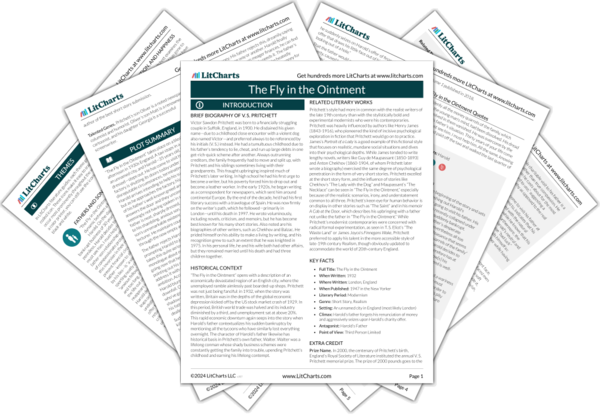The fly that appears in the father’s office represents the father’s own tendency to spoil every fantasy with his intractable greed. Pritchett alerts us to the fly’s significance by titling his story “The Fly in the Ointment,” an expression referring to a flaw that inevitably ruins something good. The father’s greed eventually doomed his own dreams of success that he pursued over a 30-year career. It reasserts itself at the story’s end to sweep away his wistful rejection of money and desire for a simple life. His greed likewise seems to have soured Harold’s perception of him in the past. Now that Harold has convinced himself that he must help his father in the older man’s time of crisis, the father spoils this hopeful outreach once again with his final outburst of greed. The fly itself only becomes noticeable because the factory’s machines have gone silent, illustration the ways in which essential flaws often come to light in extreme situations of crisis and exposure. The fly’s appearance creates an occasion for the father to demonstrate his cruelty and paranoia in hunting it down, not seeing how distinctly he himself resembles the fly in relation to others. Indeed, he becomes fly-like in his final nagging harassment of his son, metaphorically feeding off his blood (or, more literally, hoping to feed off his money).
The Fly Quotes in The Fly in the Ointment
“Yes, can’t you hear it? It’s peculiar how you can hear everything now the machines have stopped. It took me quite a time to get used to the silence. Can you see it, old chap? I can’t stand flies, you never know where they’ve been.”










